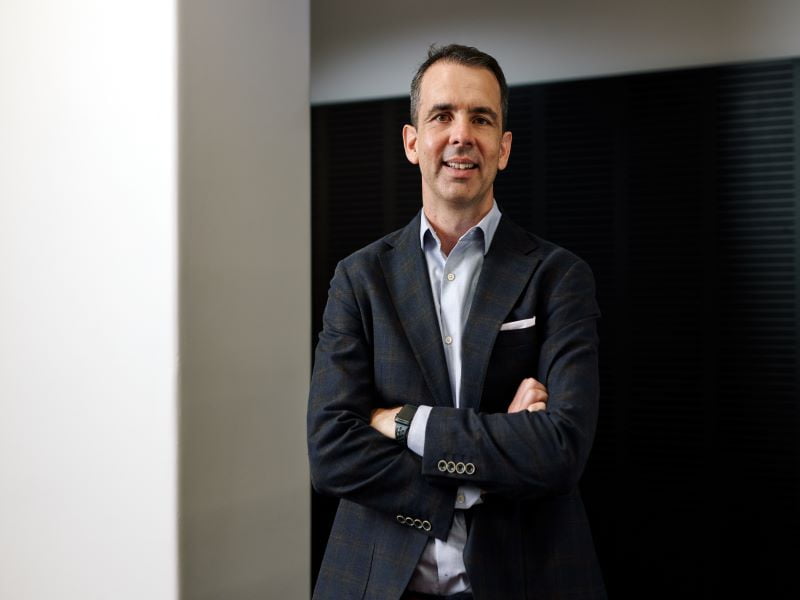What does it take to reverse the tech brain drain and get some of Australia’s top research talent to return home?
It’s a question that’s quietly circled around in my head ever since I left Australia for the US more than 20 years ago; and again, more recently, as the country contends with how to fill the 1.2 million tech-related jobs that will be employed in the sector by 2030.
Announcing a series of roundtable discussions about the skilled labour shortage last month, Industry minister Ed Husic said one of his priorities is ‘brain regain’ – encouraging Australian researchers and innovators to return home.
I’m probably a good example of how you can make that happen for artificial intelligence (AI).

After completing my PhD in Australia, I landed an AI research position with the Robotics Institute at Carnegie Mellon University in Pittsburgh. What I saw there blew my mind, opened my eyes, and showed me the full range of my career options.
However, I’d sometimes ask myself what it’d take for me to return home permanently. Australia is a great place to raise a family, and you can certainly carve out a great lifestyle here.
I did briefly return in 2009 for a research position, but left again after only four years because I missed the tech and academic ‘critical mass’ I’d had in the US.
But in 2020 it finally happened. My family and I packed up our life in Pittsburgh and moved to Adelaide, where I now lead the Australian Institute for Machine Learning (AIML) at the University of Adelaide.
I work in a hybrid role between AIML and as a principal scientist in computer vision with Argo AI – a Pittsburgh-based multibillion-dollar autonomous vehicle company backed by Ford and Volkswagen.
Argo AI set up operations in Pittsburgh specifically to get access to the best AI, computer vision, and robotics professors at Carnegie Mellon. These kinds of industry-academic links have created specialist jobs and opportunities to such an extent that Pittsburgh’s now known as ‘Roboburgh’.
That’s what I want for AI in Australia.
Strategically targeted hybrid appointments could help us entice leading researchers and innovators back home while also addressing the tech skills shortage facing the country.
While increasingly common in the US, specialist hybrid roles like mine are still relatively new to Australian universities.
These arrangements are particularly useful for niche fields such as AI, where specialist skills are in extremely high demand and leading researchers can attract huge salaries which public universities cannot justifiably afford.
Tech companies find hybrid roles strategically valuable, as they can tap into industry-aligned research capability and draw from a growing workforce talent pool of PhDs and graduates.
Students benefit immensely as they get to work with leading professors solving real-world problems and build industry connections. When they’re set up around top universities, an ‘ecosystem’ builds up around them.
My colleague, Professor Anton van den Hengel – a leading computer vision researcher and AIML’s founding director – is a great example of this. He splits his time between AIML and Amazon Science, where he now leads a team of 37 machine learning applied scientists and interns based out of the Lot Fourteen innovation precinct, literally across the road from the University of Adelaide campus.
Industry appetite for hybrid arrangements in AI leadership is certainly not new, and we can point to various parts of the world where they’ve been very successful.
In 2017, Google’s DeepMind established a research office in Edmonton, Canada, to work with University of Alberta professor Richard Sutton, a pioneer of AI reinforcement learning.
NYC professor Yann LeCun is also Meta’s Chief AI Scientist, and University of Toronto’s Geoffrey Hinton has been working with Google since 2013.
Enticing Australians back home through these types of working arrangements in AI would bring back a wealth of experience and open up opportunities for larger investment in the sector.
Investment tends to follow top professors, and that’s something tangible Australia can tap into because we have top talent all across the globe.
If we can somehow bring them back, not necessarily for the pay packet but for the lifestyle, we can bring the companies with them. The investment, knowledge, and jobs should follow.
Professor Simon Lucey is the director of the Australian Institute for Machine Learning (AIML) at the University of Adelaide and principal scientist at Argo AI.
Do you know more? Contact James Riley via Email.

Hi Simon,
Why don’t you start by not pouring funds in to AWS, then having AWS staff embedded in your team and directing more funds to AWS? Your actions are facilitating the brain drain. AWS staff are wolves in sheep’s cloths and AMIL are providing the cloths, I constantly see people talking at events under the AMIL banner but really they get their income from AWS. And guess what, they are promoting AWS with a clear conflict of interest.
Can the Australian Institute for Machine Learning (AIML) commit to building value for Australia and not foreign companies? Can you commit to only having people that are fully funded by AMIL use the AIML brand?